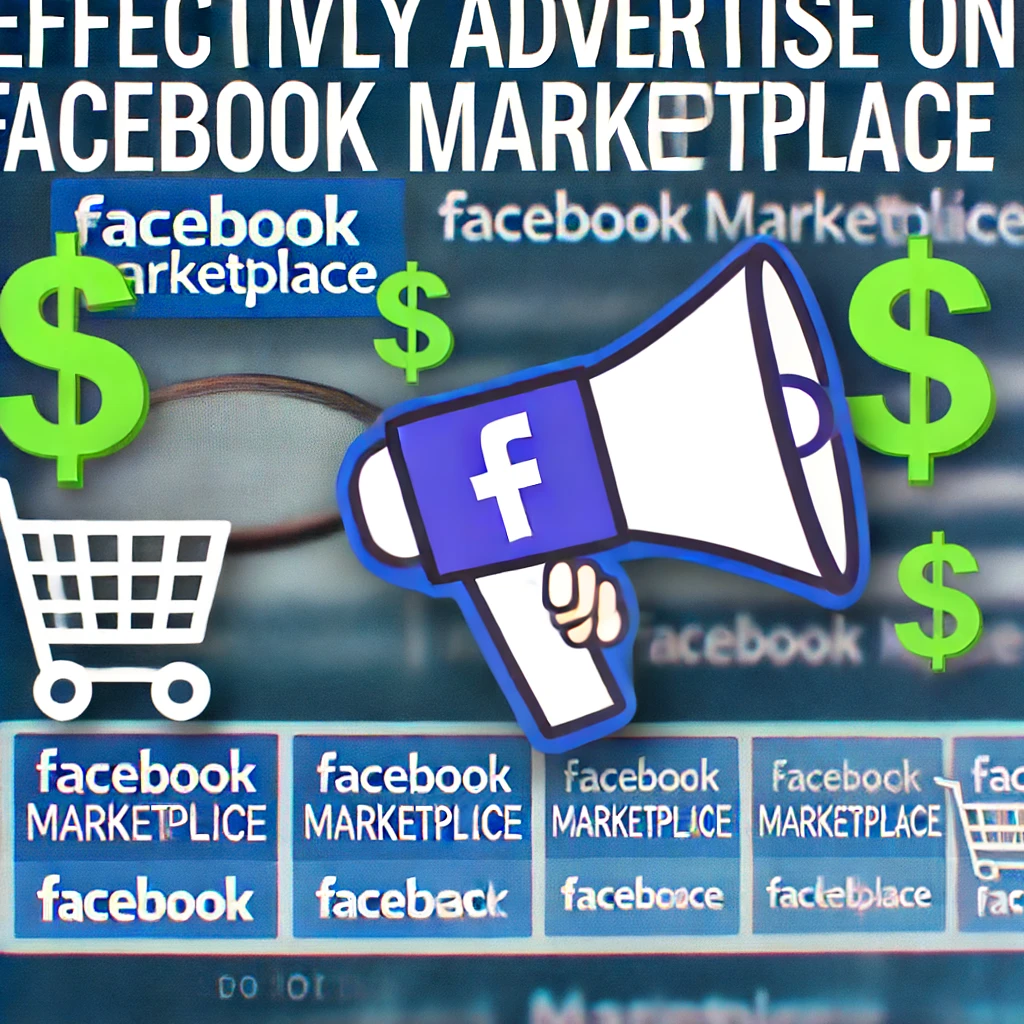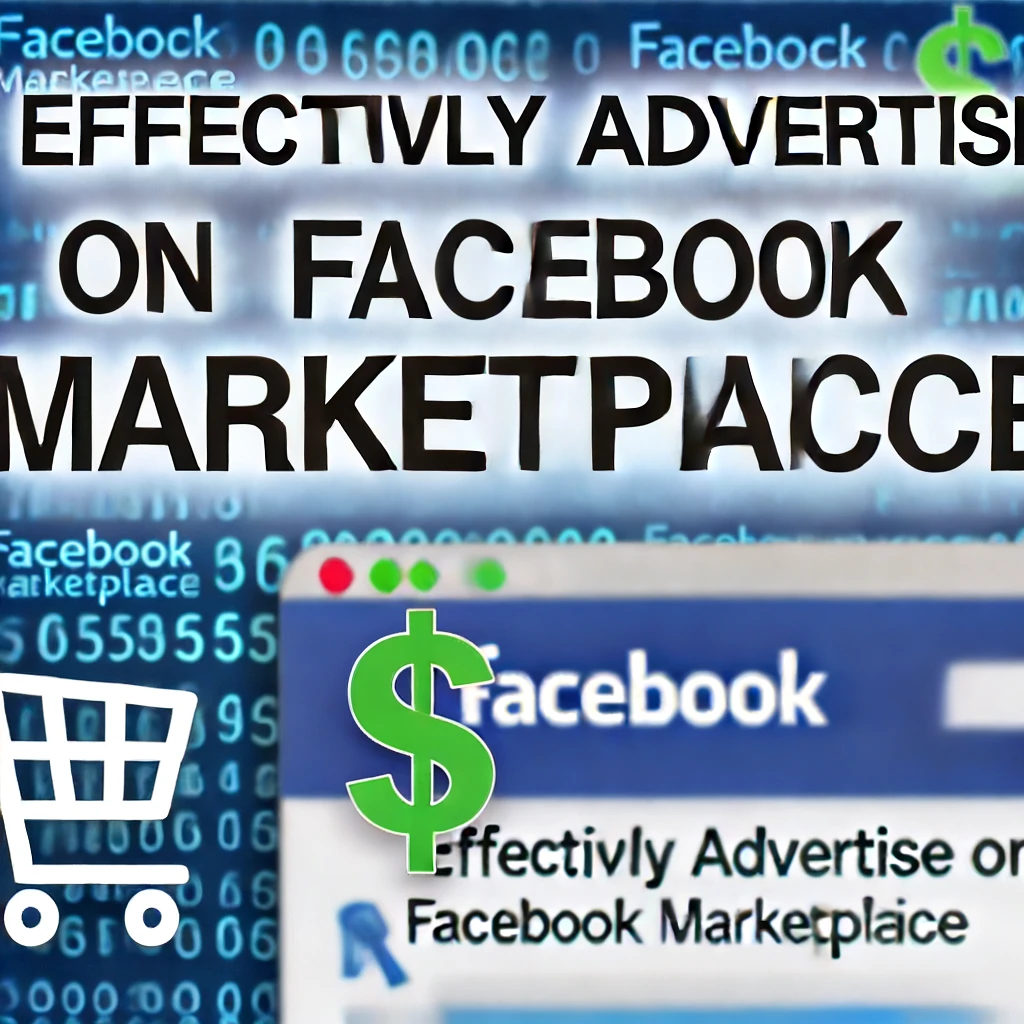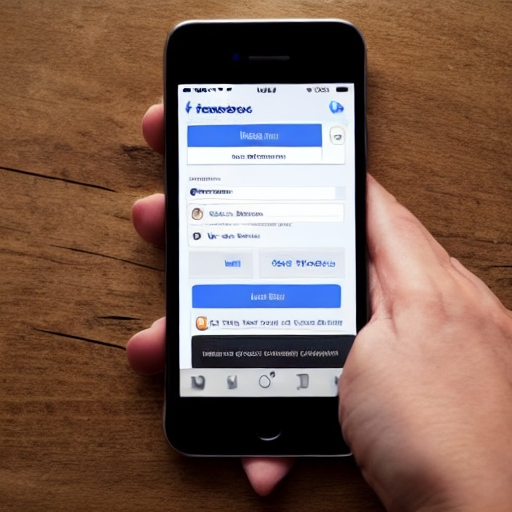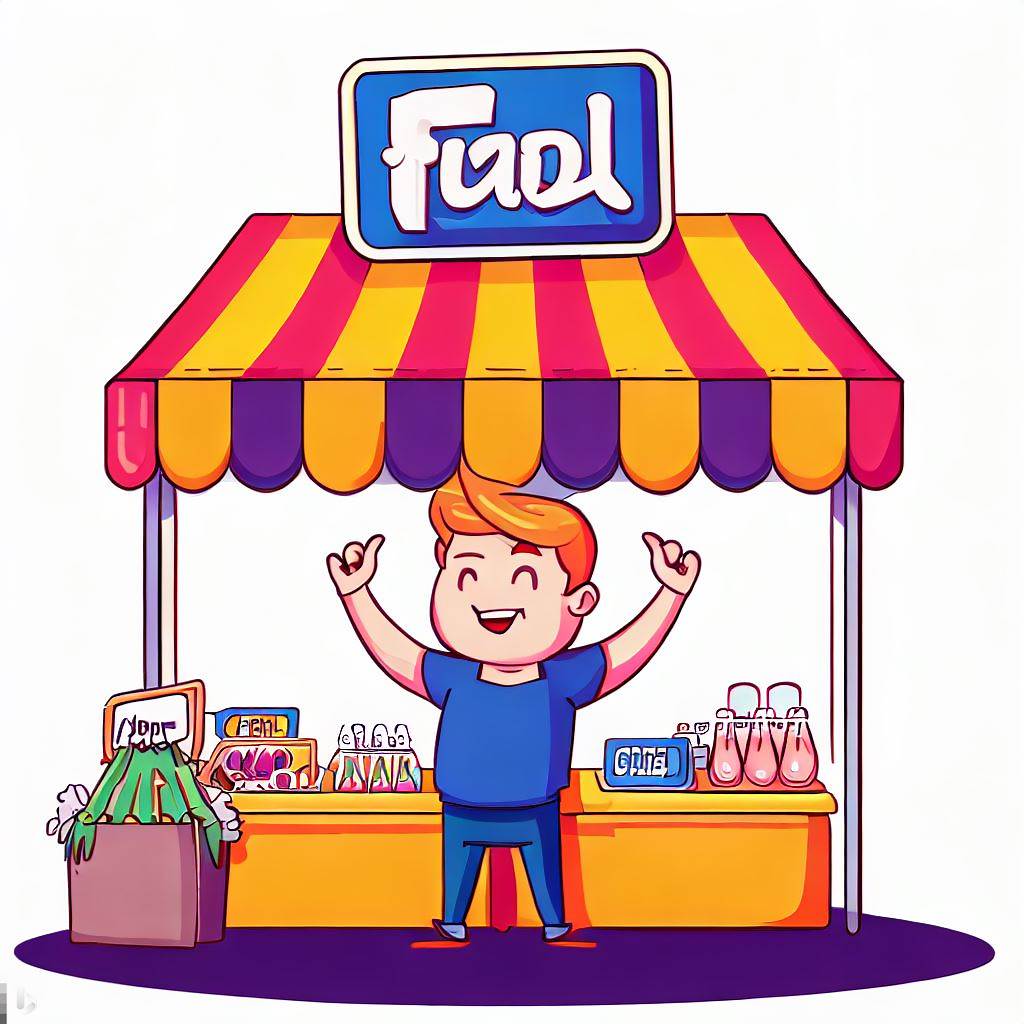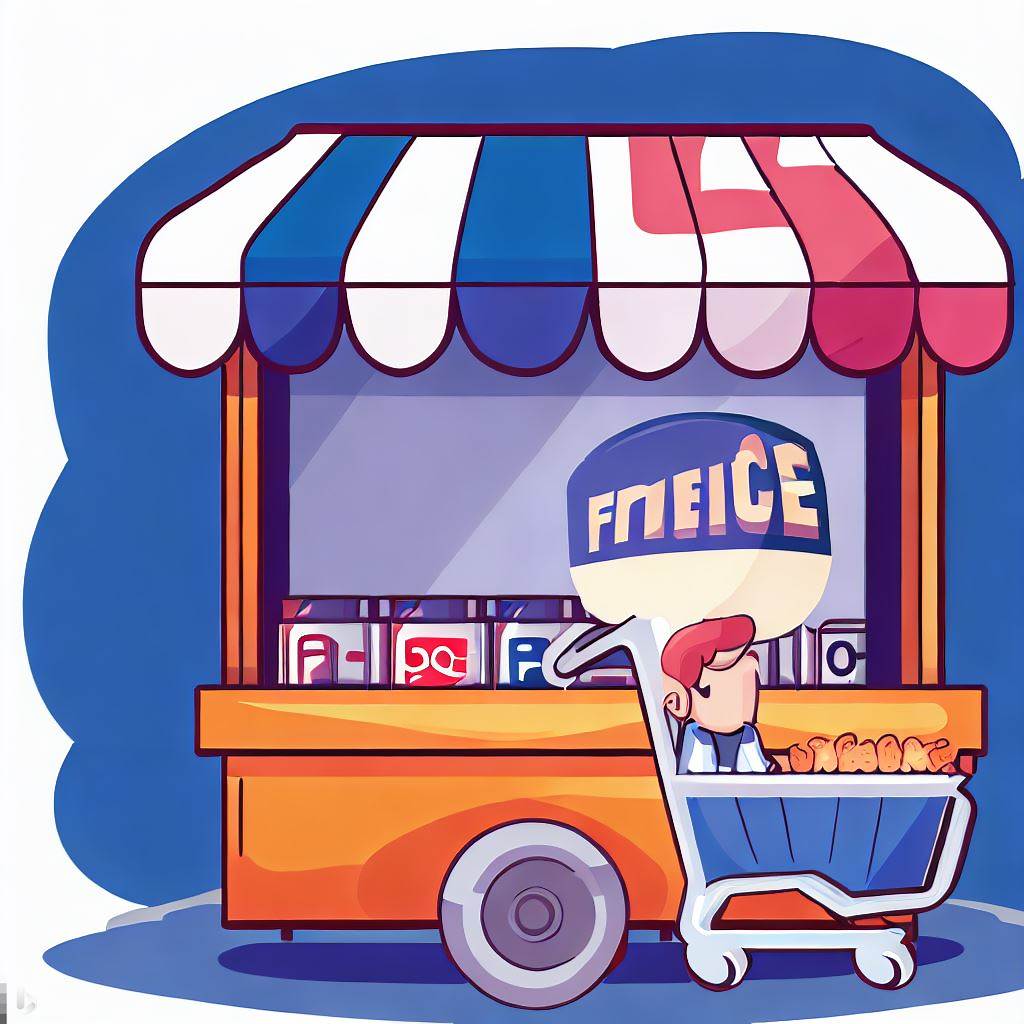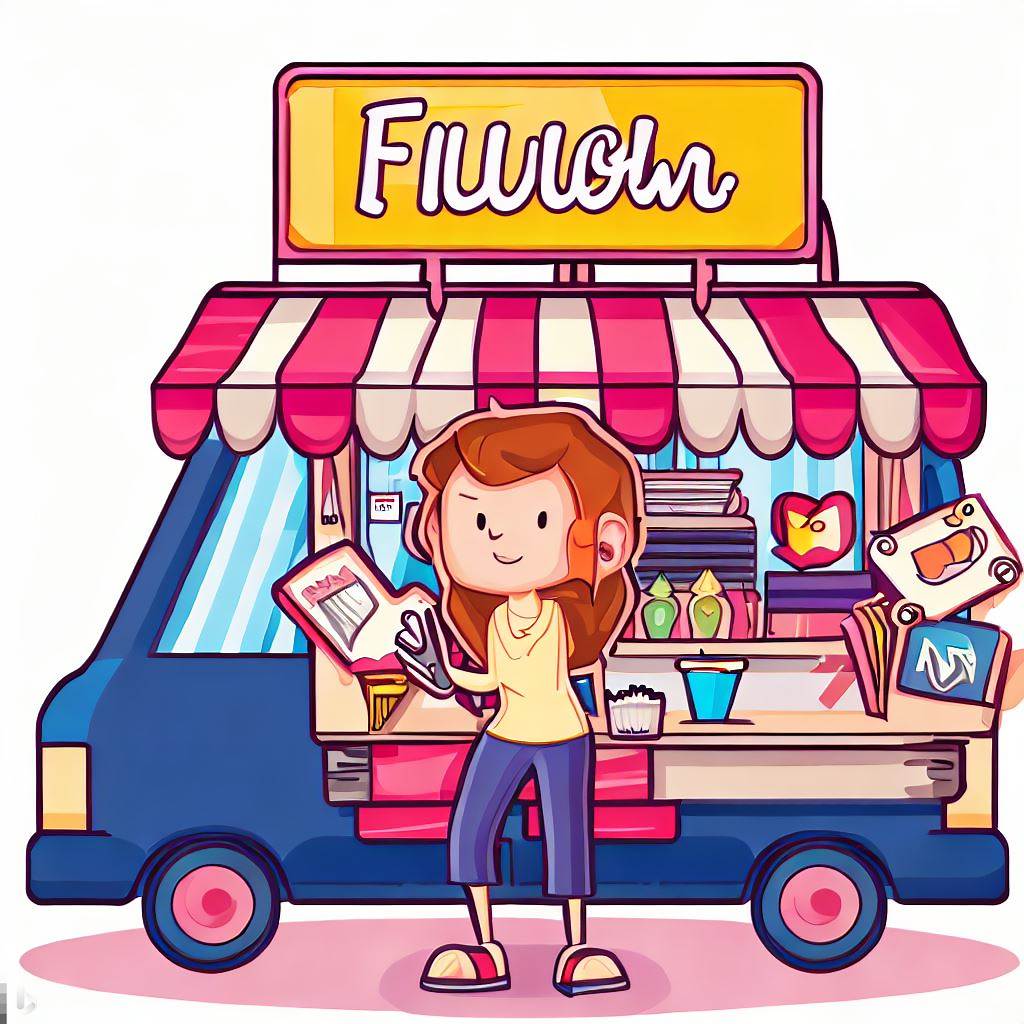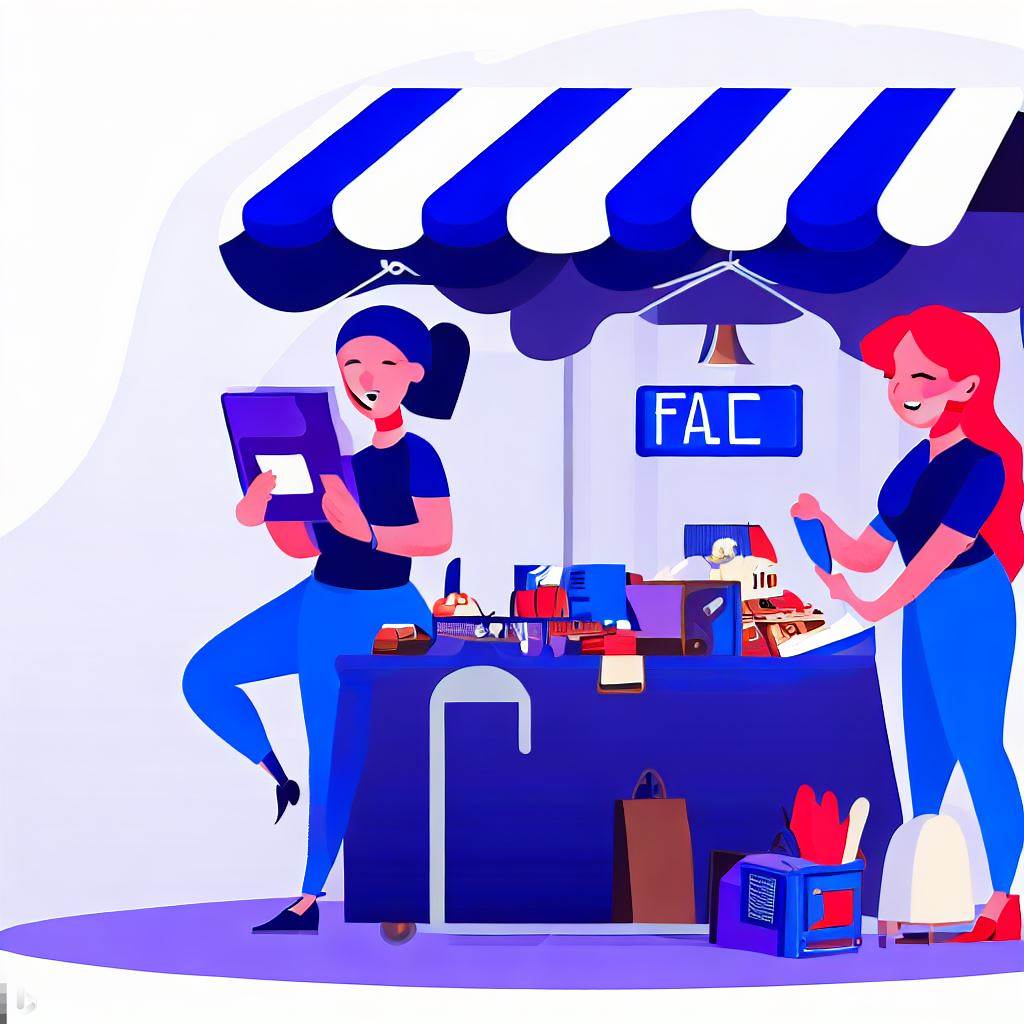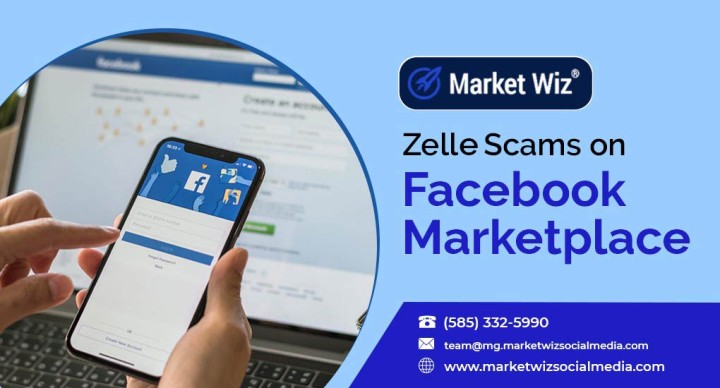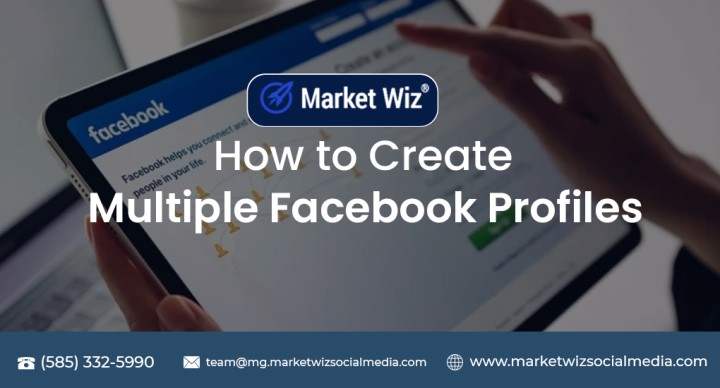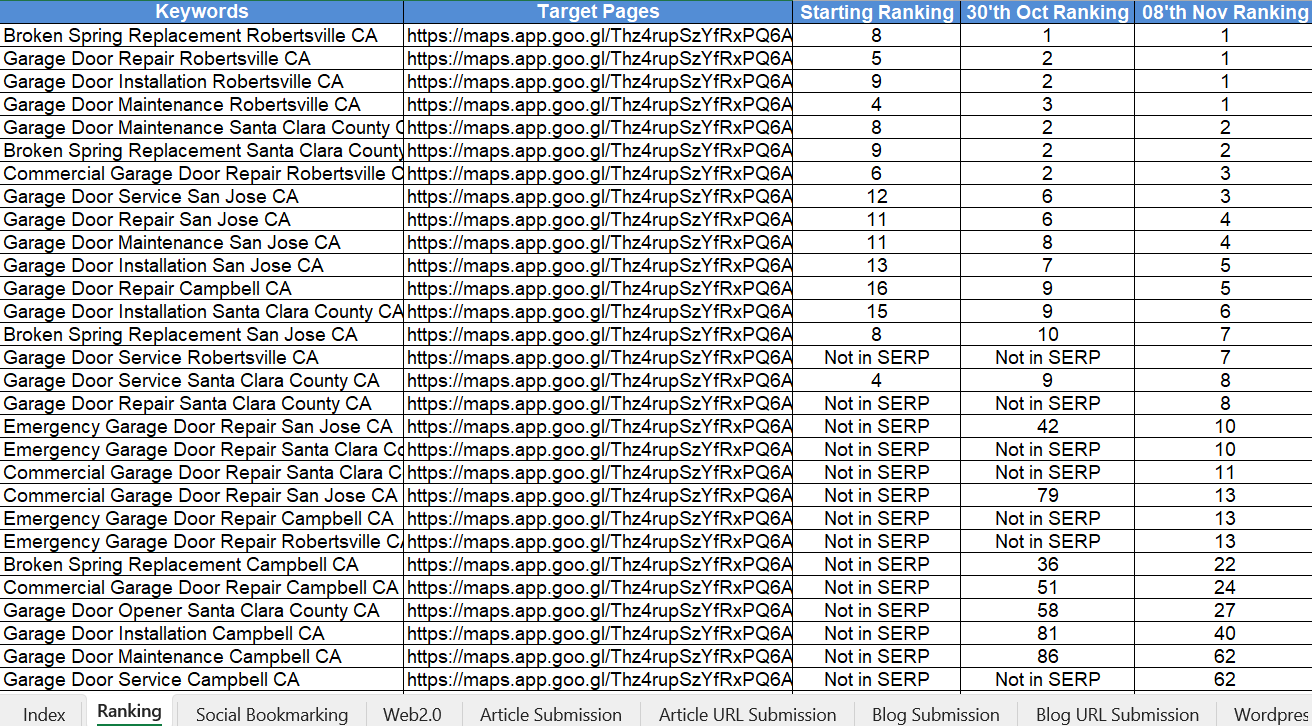Mastering Real Estate Promotion: Boost Your Business with Proven Strategies
Mastering Real Estate Promotion
Boost Your Business with Proven Strategies

In the competitive world of real estate, standing out is crucial. Whether you're a seasoned agent or just starting your real estate business, effective real estate promotion can make all the difference. From compelling promotional material for real estate to leveraging the best Facebook ads for realtors, this guide covers everything you need to elevate your presence and attract more clients.
By implementing these strategies, you can enhance your realtor branding, optimize your real estate emails, and create engaging content that resonates with your target audience.
Get Started TodayWhy Real Estate Promotion Matters
Promoting your real estate services isn't just about advertising; it's about building a brand, establishing trust, and creating a memorable presence in your market. With the right strategies, you can:
- Increase Visibility: Make your listings and services more discoverable to potential clients.
- Build Credibility: Showcase your expertise and success stories to earn trust.
- Generate Leads: Attract qualified prospects who are ready to buy or sell.
- Foster Relationships: Engage with your community and maintain lasting connections.

In the ever-evolving real estate market, the importance of promotion cannot be overstated. Effective promotion not only helps in reaching a broader audience but also in targeting the right demographic that is more likely to convert into clients. By employing a mix of traditional and digital marketing strategies, real estate professionals can create a balanced approach that maximizes their reach and effectiveness.
Moreover, consistent promotion helps in maintaining top-of-mind awareness among potential clients. In a field where competition is intense, being the first name that comes to a client's mind when they think about buying or selling property can significantly impact your success rate. Establishing a strong promotional presence through various channels ensures that you remain visible and relevant in the market.
Furthermore, effective promotion facilitates the creation of a solid brand identity. A well-defined brand not only attracts clients but also fosters loyalty and referrals. Clients who resonate with your brand are more likely to return for future transactions and recommend your services to others, thereby creating a sustainable business model based on trust and reliability.
The Multifaceted Benefits of Real Estate Promotion
Understanding the multifaceted benefits of real estate promotion can help you leverage these strategies effectively. Below are some key advantages:
1. Enhanced Market Presence
By consistently promoting your services, you establish a strong market presence that distinguishes you from competitors. This enhanced visibility ensures that your name is associated with reliability and expertise, making it easier for potential clients to choose you over others.
2. Increased Client Engagement
Effective promotion strategies engage clients by providing them with valuable information and personalized experiences. Engaged clients are more likely to interact with your content, attend your events, and ultimately, utilize your services.
3. Improved SEO and Online Visibility
Digital promotion techniques, such as content marketing and social media engagement, improve your website’s search engine optimization (SEO). Higher SEO rankings increase your online visibility, driving more organic traffic to your site and generating more leads.
4. Building Trust and Authority
Sharing insightful content and showcasing success stories helps build trust and positions you as an authority in the real estate industry. Clients are more likely to trust and engage with a professional who demonstrates expertise and a proven track record.
5. Lead Generation and Conversion
Effective promotion attracts qualified leads who are actively seeking real estate services. By nurturing these leads through targeted marketing efforts, you can increase your conversion rates and close more deals.
6. Cost-Effective Marketing
Compared to traditional advertising methods, digital promotion strategies can be more cost-effective, offering a higher return on investment (ROI). Techniques like email marketing, social media advertising, and SEO allow you to reach a larger audience with a smaller budget.
7. Adaptability to Market Changes
The real estate market is dynamic, with frequent changes in trends and client preferences. Effective promotion strategies are adaptable, allowing you to pivot and adjust your marketing efforts in response to market shifts, ensuring continued relevance and success.
Real-Life Examples and Case Studies
To illustrate the impact of effective real estate promotion, consider the following real-life examples:
Case Study 1: Jane Smith Realty
Jane Smith Realty implemented a comprehensive promotion strategy that included revamping their website, launching targeted Facebook ad campaigns, and starting a weekly newsletter. Within six months, Jane saw a 50% increase in website traffic, a 30% boost in lead generation, and a significant rise in client inquiries. The consistent promotion efforts established Jane as a trusted authority in her local market, leading to increased referrals and repeat business.
Case Study 2: Green Acres Real Estate
Green Acres Real Estate focused on content marketing by creating valuable blog posts and video tutorials on the home buying process. They also engaged with their audience on Instagram by sharing visually appealing property photos and success stories. As a result, Green Acres experienced a 40% growth in their social media following, higher engagement rates, and a steady stream of qualified leads. Their educational content not only attracted potential clients but also built trust and demonstrated their expertise.
Case Study 3: Urban Nest Properties
Urban Nest Properties leveraged email marketing by segmenting their client list and sending personalized property alerts and market updates. They also hosted virtual open houses and webinars on real estate investment strategies. These efforts led to a 35% increase in email open rates, higher attendance at virtual events, and a boost in property inquiries. The targeted email campaigns ensured that clients received relevant information, enhancing their overall experience and satisfaction.
Conclusion on Promotion Importance
Effective real estate promotion is not just about advertising; it's a strategic approach to building your brand, establishing trust, and generating quality leads. By understanding and leveraging the multifaceted benefits of promotion, real estate professionals can achieve sustained growth, enhance their market presence, and ultimately, drive their business success.
Essential Strategies for Real Estate Promotion
1. Develop Compelling Promotional Material for Real Estate
Your promotional materials are often the first impression potential clients have of your business. High-quality brochures, flyers, and postcards can showcase your listings, highlight your services, and provide valuable information about the buying or selling process.
- Professional Design: Invest in professional graphic design to ensure your materials look polished.
- Clear Messaging: Communicate your unique value proposition clearly.
- High-Quality Images: Use stunning photos of properties to capture attention.

Creating compelling promotional materials is a cornerstone of effective real estate marketing. These materials serve as tangible representations of your brand and services, providing potential clients with a comprehensive overview of what you offer. Here's how to elevate each aspect:
- Professional Design: A well-designed brochure or flyer can instantly convey professionalism and attention to detail. Use high-resolution images, consistent branding elements like colors and fonts, and a clean layout that guides the reader's eye through the content seamlessly.
- Clear Messaging: Your promotional materials should clearly articulate what sets you apart from other realtors. Whether it's your extensive local knowledge, personalized service, or innovative marketing techniques, make sure your unique selling points are prominently featured.
- High-Quality Images: Visual appeal is critical in real estate promotion. Invest in professional photography to showcase properties in the best light. Consider using virtual tours or 360-degree images to provide an immersive experience for potential buyers.
- Informative Content: Beyond just listing properties, include valuable information such as market trends, tips for buyers and sellers, and success stories. This positions you as a knowledgeable and trustworthy expert in the field.
- Call-to-Action (CTA): Every piece of promotional material should include a clear CTA, whether it's visiting your website, scheduling a consultation, or contacting you directly. Make it easy for potential clients to take the next step.
Additionally, consider incorporating QR codes that link to your online listings or virtual tours, making it convenient for clients to access more information instantly. This integration of digital elements with traditional materials can enhance engagement and lead to higher conversion rates.
Case Study: Bennett's Realty implemented a redesigned brochure campaign focusing on high-quality visuals and clear messaging. Within three months, they saw a 40% increase in inquiries and a notable boost in their brand recognition within the local market.
Best Practices:
- Consistent Branding: Ensure all promotional materials reflect your brand’s identity consistently. This includes using your logo, brand colors, and tagline across all platforms.
- Targeted Content: Tailor your content to address the specific needs and interests of your target audience. For instance, first-time homebuyers might appreciate a guide on the purchasing process, while seasoned investors might be more interested in market analysis reports.
- Print and Digital Integration: Combine traditional print materials with digital strategies. Use printed brochures at open houses and networking events, and link these materials to digital content such as your website or social media profiles for a seamless experience.
By focusing on creating high-quality, informative, and visually appealing promotional materials, real estate professionals can significantly enhance their marketing efforts, attract more clients, and ultimately drive business growth.
2. Strengthen Your Realtor Branding
Your brand is more than just a logo; it's the perception clients have of you. Strong realtor branding sets you apart from the competition and conveys your professionalism and expertise.
- Consistent Visual Identity: Use consistent colors, fonts, and logos across all platforms.
- Personal Story: Share your journey and what drives your passion for real estate.
- Client Testimonials: Showcase positive reviews and success stories to build trust.

Branding is a strategic process that defines how you present yourself to the market. A strong brand not only attracts clients but also fosters loyalty and recognition. Here’s how to strengthen your realtor branding:
- Consistent Visual Identity: Consistency is key in branding. Ensure that your logo, color palette, typography, and imagery remain uniform across all marketing channels, including your website, social media profiles, business cards, and promotional materials. This uniformity helps in creating a memorable and professional image.
- Personal Story: People connect with stories. Sharing your personal journey, including your motivations, challenges, and successes in real estate, humanizes your brand and builds a deeper connection with your audience. Highlight what drives your passion for helping clients find their dream homes or sell their properties effectively.
- Client Testimonials: Positive feedback from satisfied clients serves as powerful social proof. Display testimonials prominently on your website and in your promotional materials. Video testimonials can be particularly impactful, allowing prospective clients to see and hear authentic experiences from past clients.
- Unique Value Proposition (UVP): Clearly define what makes you unique in the real estate market. Whether it's your in-depth local market knowledge, exceptional negotiation skills, or innovative marketing techniques, your UVP should be at the forefront of your branding efforts.
- Professionalism and Expertise: Demonstrate your expertise through informative content, such as blog posts, webinars, and workshops. Position yourself as a thought leader in the real estate industry by sharing insights, trends, and valuable tips that can benefit your clients.
- Brand Voice and Messaging: Develop a consistent brand voice that reflects your personality and resonates with your target audience. Whether it's friendly and approachable or formal and authoritative, your messaging should align with the overall tone of your brand.
Investing in professional branding services, including graphic design and copywriting, can significantly enhance the effectiveness of your branding efforts. A well-crafted brand identity not only attracts clients but also builds trust and credibility in the competitive real estate market.
Example: Jane Doe Realty revamped their branding by developing a new logo, updating their color scheme, and creating a consistent message across all platforms. As a result, they saw a 25% increase in brand recognition and a significant boost in client inquiries within six months.
3. Harness the Power of Real Estate Emails
Email marketing remains one of the most effective ways to reach and engage with your audience. From newsletters to property alerts, real estate emails keep you top-of-mind for potential clients.
- Segmentation: Divide your email list based on client preferences and behaviors.
- Personalization: Address recipients by name and tailor content to their interests.
- Value-Driven Content: Provide useful information, such as market updates or home maintenance tips.

Email marketing is a powerful tool that allows real estate professionals to maintain ongoing communication with their client base. Here’s how to maximize the effectiveness of your real estate email campaigns:
- Segmentation: Not all clients have the same needs or interests. Segment your email list based on criteria such as location, property type preferences, budget ranges, and stage in the buying or selling process. This allows you to send targeted emails that are more relevant and engaging to each group.
- Personalization: Personalized emails perform significantly better than generic ones. Use the recipient’s name in the subject line and body of the email. Tailor the content based on their past interactions, preferences, and behaviors. For example, if a client has shown interest in condos, send them updates about new condo listings or market trends related to condos.
- Value-Driven Content: Ensure that every email you send provides value to the recipient. This could include:
- Market Insights: Share the latest real estate market trends, statistics, and forecasts to keep your clients informed.
- Property Alerts: Notify clients about new listings, price reductions, or upcoming open houses that match their criteria.
- Home Buying/Selling Tips: Offer practical advice on topics like preparing a home for sale, understanding mortgage options, or tips for first-time homebuyers.
- Client Success Stories: Highlight successful transactions and client testimonials to build trust and credibility.
- Local Community News: Share information about local events, developments, and amenities that can influence property values and lifestyle.
- Engaging Subject Lines: Craft compelling subject lines that grab attention and encourage recipients to open the email. Avoid generic phrases and aim for specificity and relevance. For example, "Your Dream Home Awaits: New Listings in [Location]" is more enticing than "New Properties Available."
- Visually Appealing Design: Use a clean and professional email template that aligns with your branding. Incorporate high-quality images, clear headings, and concise text. Ensure that the design is mobile-responsive, as many users access emails on their smartphones.
- Clear Call-to-Action (CTA): Every email should have a clear CTA that directs the recipient towards the next step, whether it’s scheduling a consultation, visiting your website, or attending an open house. Make sure the CTA stands out visually and is easy to find.
- Automation: Utilize email marketing automation tools to streamline your campaigns. Set up automated sequences for new leads, follow-ups after open houses, birthday greetings, and other personalized touchpoints. Automation ensures consistent communication without requiring manual effort for every email.
- Analytics and Optimization: Monitor the performance of your email campaigns by tracking metrics such as open rates, click-through rates, conversion rates, and unsubscribe rates. Use this data to understand what’s working and what needs improvement. A/B testing different subject lines, content formats, and CTAs can help optimize future campaigns for better results.
By leveraging email marketing effectively, you can nurture relationships with your clients, keep them informed, and guide them through the buying or selling process, ultimately leading to increased conversions and client satisfaction.
4. Invest in the Best Facebook Ads for Realtors
Social media advertising, particularly on Facebook, offers unparalleled targeting options. Best Facebook ads for realtors can help you reach specific demographics, locations, and interests, ensuring your message lands in front of the right people.
- Eye-Catching Visuals: Use high-quality images or videos of your listings.
- Clear Call-to-Action: Encourage users to contact you, visit your website, or schedule a viewing.
- Targeted Audience: Utilize Facebook's targeting tools to narrow down your audience based on location, age, interests, and more.

Facebook Ads are a powerful component of a realtor's marketing arsenal due to the platform's extensive reach and sophisticated targeting capabilities. Here’s how to maximize the effectiveness of your Facebook advertising campaigns:
- Define Your Target Audience: Utilize Facebook’s robust targeting options to reach the right audience. You can target users based on demographics (age, gender, income), location (specific neighborhoods, cities, or regions), interests (home improvement, interior design), behaviors (recently moved, home buyers), and more. The more precise your targeting, the higher the likelihood of reaching potential clients who are genuinely interested in your services.
- Compelling Ad Creatives: Your ad visuals should be high-quality and eye-catching. Use professional photos of properties, virtual tours, or engaging videos that highlight the key features of a listing. Incorporate your branding elements, such as your logo and color scheme, to ensure consistency across all ads.
- Engaging Ad Copy: Write clear and concise ad copy that communicates the value proposition and includes a strong call-to-action (CTA). Highlight unique selling points, such as exclusive listings, limited-time offers, or special promotions. Make sure your message resonates with your target audience and encourages them to take action.
- Utilize Different Ad Formats: Facebook offers various ad formats, including carousel ads, video ads, slideshow ads, and lead generation ads. Experiment with different formats to see which ones perform best for your objectives. For example, carousel ads are great for showcasing multiple properties, while video ads can provide a virtual tour experience.
- Retargeting Campaigns: Implement retargeting strategies to reach users who have previously interacted with your website or Facebook page. Retargeting ads can remind potential clients about your services and encourage them to return and take the next step, such as scheduling a consultation or viewing a property.
- Budget Management: Allocate your budget wisely by testing different ads and optimizing based on performance. Start with a modest budget to test various creatives and targeting options, then scale up the ones that yield the best results. Use Facebook’s ad management tools to monitor your spending and adjust bids and budgets as needed.
- Track and Analyze Performance: Use Facebook’s analytics tools to track the performance of your ads. Monitor key metrics such as click-through rates (CTR), conversion rates, cost per click (CPC), and return on ad spend (ROAS). Analyzing these metrics helps you understand what’s working and what needs improvement, allowing you to refine your campaigns for better results.
- A/B Testing: Conduct A/B tests by creating multiple versions of your ads with slight variations in headlines, images, copy, or CTAs. This helps identify which elements resonate most with your audience and drive higher engagement and conversions.
- Integrate with CRM: Integrate your Facebook Ads with your Customer Relationship Management (CRM) system to track leads and manage client relationships effectively. This ensures that you can follow up with leads promptly and nurture them through the sales funnel.
By strategically investing in Facebook Ads, realtors can significantly enhance their online presence, reach a highly targeted audience, and generate valuable leads that translate into successful property transactions.
5. Leverage Real Estate Social Media Marketing
Beyond Facebook, platforms like Instagram, LinkedIn, and Twitter offer unique opportunities to connect with potential clients. Real estate social media marketing allows you to showcase your listings, share industry insights, and engage with your community.
- Regular Posting: Maintain a consistent posting schedule to keep your audience engaged.
- Interactive Content: Use polls, Q&A sessions, and live tours to interact with followers.
- Hashtags: Utilize relevant hashtags to increase the discoverability of your posts.

Social media platforms offer a dynamic and interactive way to promote real estate services and engage with a broader audience. Here’s how to effectively leverage various social media channels for real estate marketing:
- Instagram: Instagram is ideal for visual storytelling. Use high-quality images and videos to showcase property listings, virtual tours, and behind-the-scenes glimpses of your real estate business. Utilize Instagram Stories and Reels to create engaging, short-form content that captures attention quickly. Incorporate relevant hashtags such as #RealEstate, #HomeForSale, #PropertyListing, and localized hashtags like #ClarksburgRealEstate to increase your posts' visibility.
- LinkedIn: LinkedIn is a powerful platform for building professional relationships and establishing authority in the real estate industry. Share informative articles, market insights, and success stories to demonstrate your expertise. Participate in relevant LinkedIn groups and discussions to connect with other professionals and potential clients. Additionally, leverage LinkedIn’s publishing platform to share in-depth content that showcases your knowledge and experience.
- Twitter: Twitter is effective for real-time updates and engaging with a wider audience through quick, concise messages. Share news about new listings, open houses, and real estate trends. Engage with followers by responding to comments, retweeting relevant content, and participating in industry-related conversations using trending hashtags.
- Pinterest: Pinterest is a valuable platform for sharing visual content related to home design, renovation ideas, and property listings. Create boards that reflect different aspects of real estate, such as "Dream Homes," "Home Renovation Ideas," and "Clarksburg Neighborhoods." Pin high-quality images and infographics that provide value to your audience and drive traffic back to your website.
- YouTube: YouTube is the go-to platform for video content. Create virtual tours of your listings, informational videos on the buying/selling process, and client testimonial videos. Optimize your video titles, descriptions, and tags with relevant keywords to improve searchability. Consider running YouTube Ads to promote your videos to a targeted audience.
- Facebook Groups: Join and actively participate in local Facebook Groups related to real estate, home buying, and community events in Clarksburg. Share your listings, offer advice, and engage with group members to build relationships and establish yourself as a trusted resource.
- Content Calendar: Develop a content calendar to plan and schedule your social media posts in advance. This ensures consistency and allows you to strategically align your content with important dates, market trends, and promotional campaigns.
- Engagement and Interaction: Social media is a two-way street. Encourage interaction by asking questions, conducting polls, and hosting live Q&A sessions. Respond promptly to comments and messages to foster a sense of community and trust among your followers.
- Analytics and Optimization: Use the analytics tools provided by each platform to track the performance of your social media efforts. Monitor metrics such as engagement rates, reach, click-through rates, and conversions. Use these insights to refine your strategies, focusing on what works best for your audience.
By effectively leveraging social media platforms, real estate professionals can create a robust online presence, engage with their target audience, and drive meaningful interactions that lead to successful transactions.
6. Create Cool Real Estate Websites
Your website is your digital storefront. Investing in cool real estate websites can enhance user experience, showcase your listings effectively, and generate leads.
- Responsive Design: Ensure your site looks great on all devices.
- Advanced Search Functionality: Allow users to filter listings based on their preferences.
- Integration with MLS: Display up-to-date listings directly from the Multiple Listing Service.
- Contact Forms: Make it easy for visitors to reach out to you.

A well-designed real estate website is crucial for establishing your online presence and attracting potential clients. Here’s how to create a website that stands out:
- Responsive Design: In today’s mobile-driven world, having a responsive website that adapts seamlessly to different screen sizes is essential. A responsive design ensures that your site is accessible and user-friendly on desktops, tablets, and smartphones, enhancing the overall user experience.
- Advanced Search Functionality: Provide an intuitive and robust search feature that allows users to filter properties based on various criteria such as location, price range, number of bedrooms, property type, and more. Advanced search capabilities make it easier for visitors to find listings that meet their specific needs, increasing the likelihood of engagement and conversions.
- Integration with MLS: Integrate your website with the Multiple Listing Service (MLS) to display real-time property listings. This ensures that your website always showcases the most up-to-date information, eliminating the need for manual updates and providing a reliable source of information for potential clients.
- High-Quality Visuals: Incorporate high-resolution images, virtual tours, and video walkthroughs of properties. Visual content plays a significant role in capturing the attention of visitors and providing a comprehensive view of the properties you’re promoting.
- Clear Call-to-Action (CTA): Strategically place CTAs throughout your website to guide visitors towards desired actions, such as scheduling a consultation, signing up for newsletters, or contacting you for more information. Make sure CTAs are prominent, visually appealing, and easy to interact with.
- Testimonials and Success Stories: Showcase client testimonials and success stories to build trust and credibility. Positive feedback from satisfied clients can significantly influence the decision-making process of potential customers.
- SEO Optimization: Optimize your website for search engines by incorporating relevant keywords, meta tags, alt texts for images, and creating SEO-friendly URLs. A well-optimized website ranks higher in search engine results, increasing your visibility to potential clients.
- Blog Section: Maintain an active blog section where you can share valuable content related to real estate, market trends, home buying/selling tips, and more. Regularly updated blogs improve your website’s SEO and position you as an industry expert.
- Fast Loading Speed: Ensure that your website loads quickly to prevent visitors from bouncing. Optimize images, use efficient coding practices, and leverage caching techniques to enhance loading speeds.
- Security Features: Implement robust security measures, including SSL certificates, to protect user data and ensure that your website is secure. A secure website builds trust with visitors and is favored by search engines.
Investing in a high-quality, user-friendly website is an investment in your real estate business’s success. A well-designed website not only attracts and engages visitors but also serves as a powerful tool for lead generation and client conversion.
Example: Smith Realty launched a new website featuring an advanced search tool, virtual tours, and client testimonials. Within six months, they experienced a 50% increase in website traffic and a significant boost in lead generation efforts.
7. Master How to Market Yourself as a Real Estate Agent
Marketing yourself effectively is key to attracting clients and building a successful real estate business. It involves a combination of online and offline strategies tailored to your strengths and market.
- Networking: Attend local events, join real estate associations, and build relationships with other professionals.
- Content Marketing: Share valuable content through blogs, videos, and social media to establish yourself as an authority.
- Personal Branding: Develop a unique brand that reflects your personality and professional ethos.

Effective self-marketing as a real estate agent is a multifaceted approach that combines various strategies to build a strong personal brand, foster relationships, and establish authority in the industry. Here’s how to master your self-marketing efforts:
- Networking: Building a robust network is fundamental in real estate. Attend local business events, community gatherings, and industry seminars to connect with potential clients and other professionals. Join real estate associations such as the National Association of Realtors (NAR) to gain access to valuable resources, training, and networking opportunities. Cultivate relationships with mortgage brokers, home inspectors, and contractors, as these connections can lead to referrals and collaborative opportunities.
- Content Marketing: Sharing valuable content positions you as an expert in the field. Maintain a blog where you can publish articles on topics like market trends, home improvement tips, and the buying/selling process. Create video content such as virtual tours, client testimonials, and educational webinars. Utilize social media platforms to share your content, engage with your audience, and provide insights that demonstrate your knowledge and expertise.
- Personal Branding: Develop a unique personal brand that differentiates you from other realtors. This includes designing a professional logo, selecting a consistent color scheme, and defining a brand voice that resonates with your target audience. Your brand should reflect your values, personality, and the unique qualities that make you the ideal choice for clients looking to buy or sell property. Consistently apply your branding elements across all marketing channels to create a cohesive and recognizable presence.
- Professional Development: Continuously improve your skills and knowledge through professional development opportunities. Attend workshops, pursue certifications, and stay updated with the latest real estate trends and technologies. Demonstrating a commitment to learning and growth enhances your credibility and effectiveness as a real estate agent.
- Client Engagement: Foster strong relationships with your clients by providing exceptional service and maintaining regular communication. Follow up with clients after transactions, send personalized messages on special occasions, and seek feedback to improve your services. Happy clients are more likely to refer you to others and become repeat customers.
- Brand Storytelling: Use storytelling to connect with your audience on a deeper level. Share stories about your experiences, challenges you’ve overcome, and the successes you’ve achieved with your clients. Authentic storytelling builds emotional connections and makes your brand more relatable and memorable.
- Utilize Testimonials and Reviews: Collect and showcase testimonials and reviews from satisfied clients. Positive feedback serves as social proof and can significantly influence the decision-making process of potential clients. Feature these testimonials prominently on your website, social media profiles, and marketing materials.
- Local Community Involvement: Engage with your local community by sponsoring events, participating in charity work, and supporting local businesses. Being active in the community enhances your visibility and establishes you as a trusted and invested member of the area.
- Personalized Client Experiences: Offer personalized experiences to your clients by tailoring your services to their specific needs and preferences. Whether it’s customizing property showings, providing tailored market reports, or offering unique incentives, personalized service can set you apart from the competition.
- Leveraging Technology: Utilize the latest real estate technologies and tools to streamline your operations and enhance client interactions. Tools like Customer Relationship Management (CRM) systems, virtual tour software, and digital signature platforms can improve efficiency and provide a seamless experience for your clients.
By mastering these self-marketing strategies, you can effectively position yourself as a top real estate agent, attract a steady stream of clients, and build a thriving real estate business that stands out in a competitive market.
Success Story: John Smith Realty implemented a comprehensive self-marketing strategy that included networking events, content marketing, and personalized client experiences. Within a year, John saw a 60% increase in client inquiries and a significant rise in repeat business and referrals.
8. Focus on Real Estate Content Creation
Quality content can drive traffic to your website, improve SEO, and engage your audience. Real estate content creation includes blog posts, videos, infographics, and more.
- Market Trends: Analyze and share current trends in your local real estate market.
- Home Buying/Selling Tips: Provide actionable advice for clients.
- Neighborhood Guides: Highlight the features and benefits of different neighborhoods.
- Client Success Stories: Share testimonials and case studies to build credibility.

Content creation is a critical component of real estate marketing, as it not only attracts potential clients but also establishes your authority and expertise in the industry. Here's how to effectively create and leverage content for your real estate business:
- Market Trends: Stay informed about the latest trends and developments in the real estate market. Share insights on housing market fluctuations, emerging neighborhoods, and changes in property values. This information positions you as a knowledgeable agent who can provide valuable guidance to clients navigating the market.
- Home Buying/Selling Tips: Create content that addresses common questions and challenges faced by buyers and sellers. Topics can include preparing a home for sale, understanding mortgage options, negotiating deals, and tips for first-time homebuyers. Offering practical advice helps build trust and demonstrates your commitment to assisting clients beyond just transactions.
- Neighborhood Guides: Develop comprehensive guides for the neighborhoods you serve. Highlight key features such as schools, parks, local businesses, transportation options, and community events. These guides provide prospective buyers with valuable information about the areas they are interested in and showcase your in-depth knowledge of the local market.
- Client Success Stories: Share detailed case studies and testimonials from satisfied clients. Highlight specific challenges, the solutions you provided, and the successful outcomes achieved. Real-life success stories serve as powerful social proof, illustrating your ability to deliver results and handle diverse client needs effectively.
- Visual Content: Incorporate various forms of visual content to make your content more engaging and shareable. High-quality photos, infographics, and videos can enhance the appeal of your content and make complex information more digestible. For example, a video walkthrough of a property or an infographic detailing the home buying process can capture attention and encourage sharing.
- SEO Optimization: Optimize all your content for search engines by incorporating relevant keywords, meta descriptions, and alt texts for images. Use tools like Google Keyword Planner or SEMrush to identify high-traffic keywords related to real estate promotion and integrate them naturally into your content. Well-optimized content improves your search engine rankings, driving more organic traffic to your website.
- Regular Updates: Maintain a consistent content publishing schedule to keep your audience engaged and improve SEO. Regularly updated content signals to search engines that your website is active and relevant, which can positively impact your rankings. Additionally, frequent content updates provide continuous value to your audience, encouraging repeat visits and sustained engagement.
- Interactive Content: Engage your audience with interactive content such as quizzes, polls, and interactive infographics. For example, a quiz like "What Type of Home Suits Your Lifestyle?" can be both fun and informative, providing personalized recommendations while collecting valuable data about your audience's preferences.
- Content Distribution: Promote your content across multiple channels to maximize its reach. Share blog posts on your social media profiles, send newsletters featuring your latest content to your email list, and collaborate with local influencers or publications to amplify your message. Effective content distribution ensures that your valuable insights reach a wider audience.
- Analytics and Feedback: Monitor the performance of your content using analytics tools to understand what resonates most with your audience. Track metrics such as page views, time spent on page, social shares, and conversion rates. Use this data to refine your content strategy, focusing on topics and formats that drive the best results.
By focusing on high-quality, informative, and engaging content creation, you can attract and retain a loyal audience, improve your online visibility, and ultimately drive more leads and sales for your real estate business.
Success Story: Green Acres Realty launched a blog featuring market trend analyses and home buying tips. Over the course of a year, their blog readership grew by 300%, significantly boosting their website traffic and lead generation efforts.
9. Explore Real Estate Blog Ideas
A well-maintained blog can significantly boost your online presence. Here are some real estate blog ideas to get you started:
- "Top 10 Tips for First-Time Homebuyers"
- "How to Stage Your Home for a Quick Sale"
- "The Impact of Local Schools on Property Values"
- "Navigating the Real Estate Market During Economic Changes"
- "Sustainable Homes: The Future of Real Estate"

Developing diverse and engaging blog content is essential for attracting a wide audience and establishing your expertise in the real estate industry. Here are detailed descriptions of each blog idea to help you create comprehensive and valuable content:
- "Top 10 Tips for First-Time Homebuyers"
This blog post can guide first-time homebuyers through the complexities of purchasing their first property. Cover essential topics such as budgeting, understanding mortgage options, the importance of pre-approval, tips for selecting the right neighborhood, and how to work effectively with a real estate agent. Providing actionable advice can help alleviate the stress and uncertainty that first-time buyers often face.
Example Content:
- Understand Your Budget: Before starting your home search, determine how much you can afford by assessing your income, savings, and existing debts. Use mortgage calculators to estimate monthly payments and ensure they fit within your financial comfort zone.
- Get Pre-Approved for a Mortgage: A pre-approval letter from a lender not only helps you understand your borrowing capacity but also strengthens your position when making an offer on a property.
- Choose the Right Neighborhood: Research different neighborhoods to find one that aligns with your lifestyle preferences, such as proximity to work, schools, amenities, and community vibe.
- Work with a Knowledgeable Realtor: A skilled realtor can provide valuable insights, negotiate on your behalf, and guide you through the entire buying process, ensuring a smoother experience.
- Attend Open Houses: Visiting open houses allows you to get a feel for different properties and understand what features you prioritize in your future home.
- Conduct Thorough Inspections: Always invest in professional home inspections to identify any potential issues or repairs needed before finalizing the purchase.
- Review All Documents Carefully: Ensure you thoroughly read and understand all contracts, agreements, and disclosures before signing to avoid any unexpected surprises.
- Plan for Closing Costs: In addition to the down payment, budget for closing costs, which can include appraisal fees, attorney fees, and other miscellaneous expenses.
- Stay Patient and Persistent: The home buying process can be lengthy, so it's essential to stay patient and remain persistent in your search to find the perfect property.
- Prepare for Moving: Once you've purchased your home, start planning your move early to ensure a seamless transition into your new space.
- "How to Stage Your Home for a Quick Sale"
- "The Impact of Local Schools on Property Values"
- "Navigating the Real Estate Market During Economic Changes"
- "Sustainable Homes: The Future of Real Estate"
Expanding on these blog ideas with comprehensive research, expert insights, and practical advice can position you as a thought leader in the real estate industry, attract more traffic to your website, and generate valuable leads for your business.
Conclusion
Effective real estate promotion is essential for building a successful real estate business. By implementing these strategies—ranging from realtor branding and real estate emails to leveraging the best Facebook ads for realtors and creating cool real estate websites—you can elevate your presence, attract more clients, and achieve sustainable growth.
Remember, consistency and authenticity are key. Continuously engage with your audience, provide value, and adapt your strategies based on feedback and market changes. Start applying these tactics today, and watch your real estate business thrive!
Ready to Elevate Your Real Estate Promotion?
Don’t miss the opportunity to enhance your real estate business with our expert real estate promotion strategies. Whether you aim to improve your online presence, generate more leads, or close more deals, Market Wiz has the expertise to help you achieve your objectives.
Our team is passionate about driving success for real estate agents through strategic marketing and digital efforts. Let’s work together to craft a strategy that delivers real results. From creating compelling content to optimizing your social media presence, we’re here to support every facet of your digital marketing needs.
Contact Us TodayMastering Real Estate Promotion: Boost Your Business with Proven Strategies Read More »



